Wednesday Feb 18, 2026
Wednesday Feb 18, 2026
Monday, 14 March 2016 00:00 - - {{hitsCtrl.values.hits}}

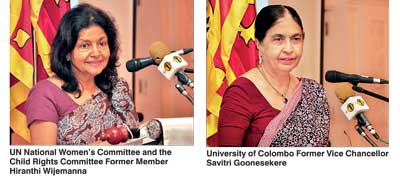
By Shannine Daniel
The first-ever Women’s Forum in Sri Lanka (WFSL) was launched on 8 March, coinciding with International Women’s Day. The forum consisted of a group of professional women specialising in diverse disciplines but with a common objective of women’s empowerment and development.
The theme chosen for this inaugural Women’s Forum in Sri Lanka 2016 was ‘Action for parity’, which supports the empowerment of women.
Together the forum will periodically formulate action plans on various pressing women’s issues for speedy Government action and to ensure accountability especially in terms of achieving equal status for women in their own lives as well as that of the communities and the areas in which they live.
The first action plan drawn up by the WFSL was handed over to City Planning and Water Supply State Minister and Member of Parliament Sudarshini Fernandopulle to be presented to the Prime Minister. The next meeting of WFSL is scheduled to take place in June.
Youth and gender
“Gender equality refers to equal access to social goods, services and resources and equal opportunities in all spheres of life for both genders,” stated Commonwealth Youth, Gender and Equality Network Coordinator Sarah Soysa.
“But just because men and women are given equal opportunities or chances does not mean that it brings about gender equality,” professed Soysa.
She went on to say that in order to achieve true gender equality, in the first place there needs to be gender equity. Gender equity implies fairness in the way men and women are treated. The different life experiences, contexts, discriminations and needs of men and women are taken into consideration through gender equity, stated Soysa.
“Gender equity empowers women and youth of both genders, therefore it should be noted that equity is essential in achieving gender equality,” she stressed.
She went on to say that in spite of all efforts taken to eliminate discrimination globally and within the country, it still takes place in many ways.
“Recent studies have shown that Sri Lanka has the highest rate of sexual harassment in South Asia where 70% of females aged 15-45 years have experienced it in public transport,” Soysa declared.
“Young women and girls lack the opportunity to make decisions concerning their own wellbeing. Furthermore there is a lack of young, capable women in decision making positions of power and authority,” she added.
She further stated that economic stability and access to equal resources are also crucial issues as a result of lack of proficiency and autonomy. Additionally she stated that despite legal measures put in place to protect women’s rights the widespread existence of social, cultural, structural and religious barriers in the country prevent women and youth, specifically girls from achieving their full potential.
Speaking about the role of the youth in bringing about gender equality and equity Soysa stated that discrimination directly and indirectly affects the lives of young people, which make them vital in forming solutions to champion gender inequality for a better future, therefore they must be supported and given more opportunities to attend forums and discussions where they can share their ideas and suggestions.
She revealed that at a recently held CYGEN youth consultation several notable measures to advance gender equity and inequality were exposed.
These include the strengthening of equal, accessible, affordable, confidential and non discriminatory youth friendly services, immediate legal or disciplinary action against sexual harassment in the workplace, recognition of cyber violence and intimate partner violence as forms of violence against women, introducing comprehensive relationship and sexual education in schools with proper teacher and parent training, comprehensive gender sensitivity training for police officers and state officials and the establishment of an independent women’s commission that campaigns for and ensures women’s rights with a fair representation of youth.
The need for a greater participation of women in local government and provincial and national government and the encouragement of leaders of political parties to pledge for fair representation of women within their parties and support more female politicians on the political frontline were also highlighted at this consultation, stated Soysa.
“We need to work towards a more holistic approach on women’s rights and dignity, freedom of choice and gender equality to make this world a better place,” she concluded.
Equality, discrimination and access to justice
“Historically, throughout the years and in all countries women have been discriminated due to their gender, not because of caste or religion or wealth but on the basis of the fact that they are women,” declared University of Colombo Former Vice Chancellor Savitri Goonesekere.
She stated that Sri Lanka has been quite successful in eliminating legal inequality, that is inequality and discrimination through law, and women in Sri Lanka now have the freedom to participate in governance.
“Some of us worked hard to remove the legal barriers and the laws which prevented women from participating in politics. But we have not eliminated ‘inequality and discrimination in fact’, which is why in 68 years we have had only 5% of women’s participation in the Parliament,” declared Goonesekere.
“We must not keep thinking about what we have already achieved but we need to address what we have not achieved,” she stressed.
Speaking about WFSL, she opined that there is a vision of equality and parity among all women in this country, and this initiative connects career women and professional women along with the activists and the researchers who have been working on these issues for years.
Personal protection
UN National Women’s Committee and the Child rights Committee Former Member Hiranthi Wijemanna stated that personal protection is a necessity for women and girls, because sexual harassment takes places in a wide variety of public areas such as buses, trains and roads and even certain schools, universities and public and private sector offices.
“Especially for school girls, travelling by bus is an ordeal and most often than not they put up with the harassment that they have to undergo because they have no choice,” stressed Wijemanna.
“Most of the time this occurs because the buses are crowded but that does not mean that this behaviour is allowed,” she continued.
Both public and private sector offices see women subjected to such behaviour as well and they endure it because they are dependent on their jobs. They don’t like to speak about it either and even when they do there is no proper investigation that takes place in light of this. More importantly no action is taken against the perpetrator who will continue to do these crimes to other women, noted Wijemanna.
“We need to have personal protection in public places but we need to consider our homes as well since this is where we spend most of our time,” Wijemanna emphasised.
She also stressed that domestic violence taking place in many Sri Lankan homes is a prevalent issue and it is very difficult to deal with mainly because most women are under familial pressure, thus they are afraid to complain to the authorities. She also revealed that there have been a few cases where victims have withdrawn their statements to the police due to familial pressure.
She added that sexualised crimes committed through the internet are also a rising concern and a strategy needs to be thought of to prevent such demeaning crimes stated Wijemanna.
As a long term solution to these issues Wijemanna suggested that children need to be introduced to the values of gender equality and the respect for girls and women from a young age since it is very difficult to change their attitudes once they become older.
She went on to say that the education system plays a vital role in promoting these values among young minds and the school text books should include lessons about these values to a greater extent. The media plays a crucial role in shaping the attitude of people as well and it is imperative that they reduce the content which seemingly promotes gender discrimination, she asserted.
Reproductive health
AIDS Foundation Sri Lanka vice Chair and Family Planning Sri Lanka President Premila Senanayake elaborated on maternal mortality in Sri Lanka and the disparities among the developed and under developed areas of Sri Lanka in regard to Reproductive Health Services.
“There are geographical disparities in terms of access to quality reproductive healthcare,” added Senanayake.
She revealed that the maternal mortality ratio in Sri Lanka as of 2015 is 30 deaths per 100,000 live births.
“Sri Lanka is doing well in terms of maternal mortality, but it is still not enough because we can do better,” asserted Senanayake.
In order to further reduce maternal mortality in Sri Lanka additional health facilities and resources need to be provided to rural hospitals along with well trained and efficient staff, she said.
She further stated that even though Colombo has a low number of teenage pregnancies in rural areas it is higher. This is mainly due to issues such as poverty and economic difficulties, teen marriages and a lack of parental supervision when the one or both parents are overseas.
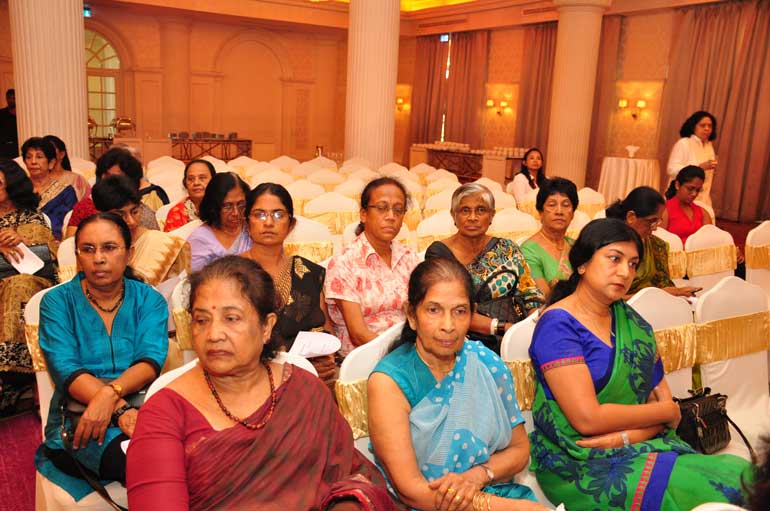
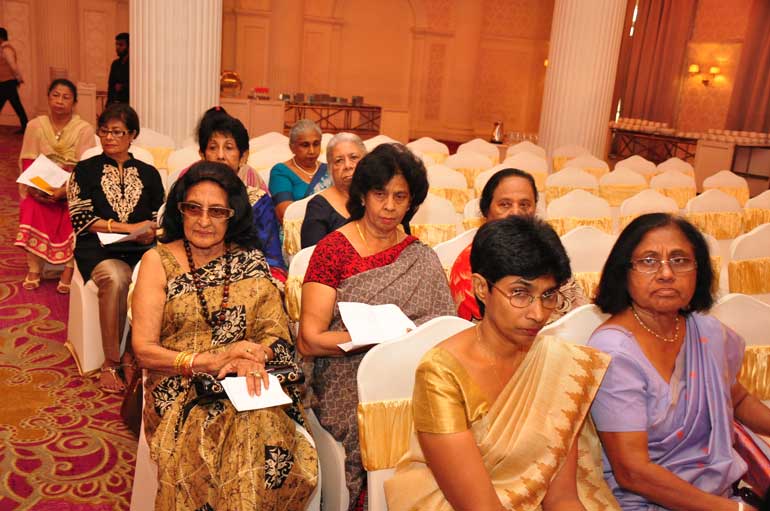
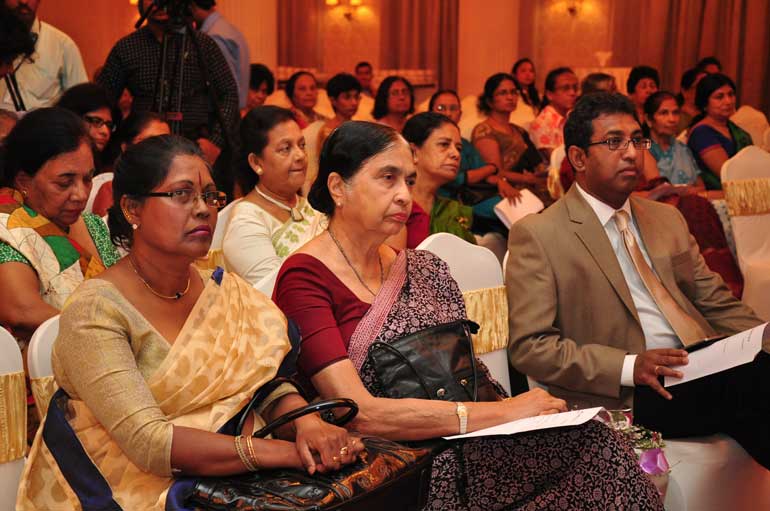
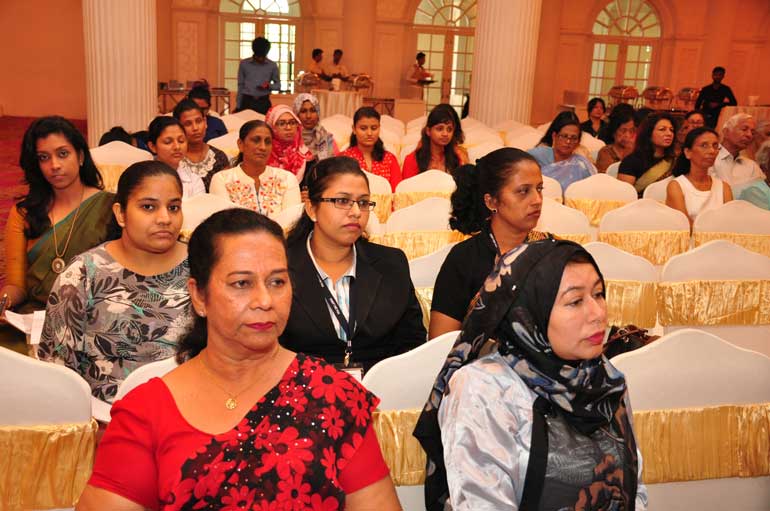
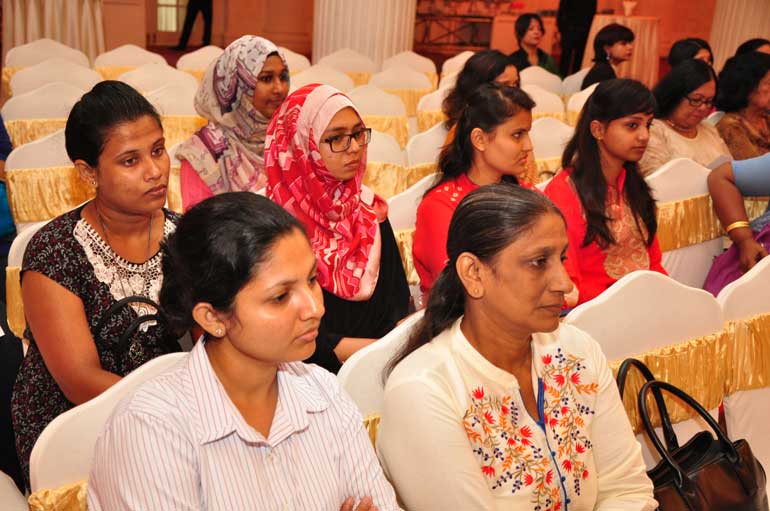
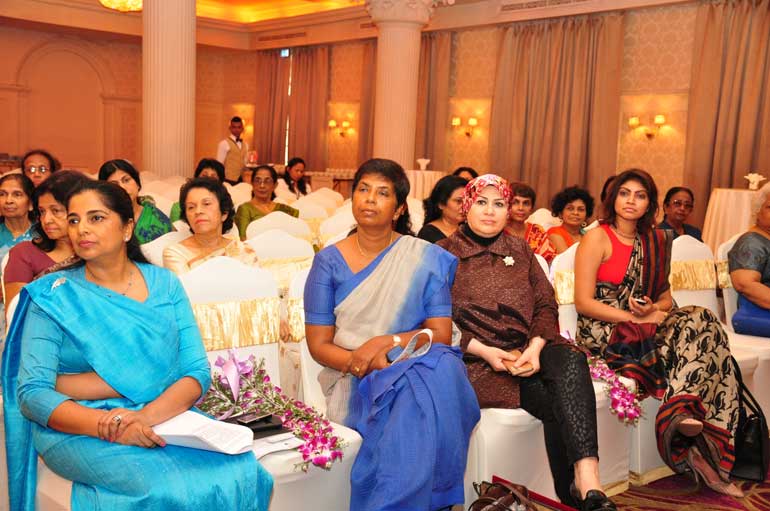
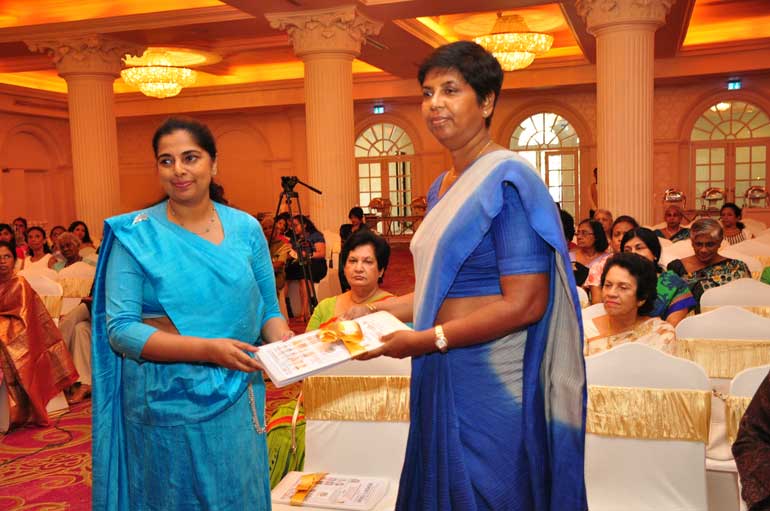
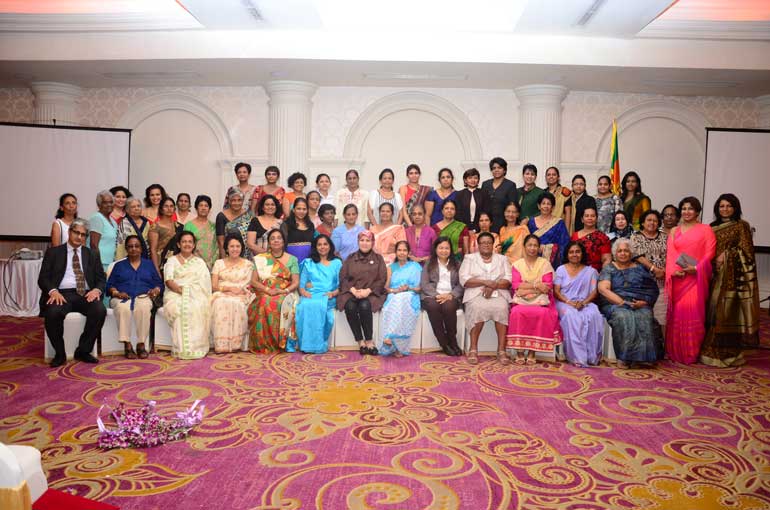
Pix by Lasantha Kumara